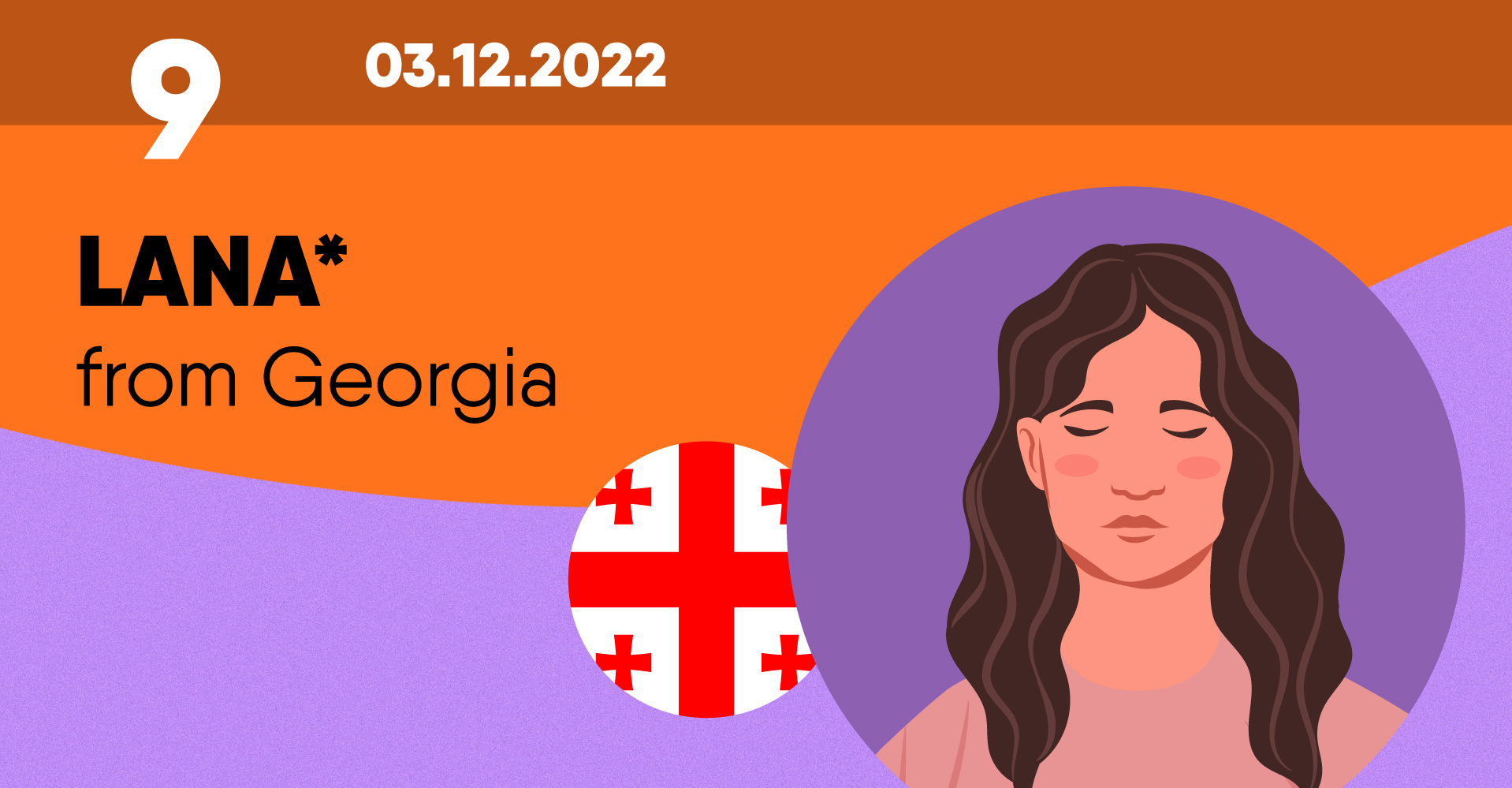
According to the statistics of the Ministry of Internal Affairs of Georgia, domestic violence is the most common criminal offense in the country, after theft. At the same time, such cases in relation to men occur five times less often than with regards to women. Last year, 4,767 cases were initiated under the article of domestic violence, and in 2022, more than 600 women became victims of it in July, almost half of them are residents of Tbilisi, and 10 cases of murder and more than 20 attempts were recorded.
Activists and civil society in Georgia are extremely concerned – on paper, the state assumed a number of key obligations to protect women’s rights almost 30 years ago*, but in fact, during all this time, the existing laws have not been able to provide it and serious problems with their implementation remain as always on the agenda.

“Unfortunately, the system of support for women who have experienced violence has not yet been established,” says Khatuna Siradze, REActor, NGO “Tanadgoma” Consultant. “We are working with various vulnerable groups and I can note that there is no trend towards a decrease in requests yet. For example, the situation of sex workers is extremely difficult – the same girl can make several visits to us a month and each time with a new case of violence. Clients, police, partners – the threat is everywhere. In Georgia, it is still like this: until you bring a woman to a critical point, until there are scars on her face and on her body, burns from cigarette butts, she will not call and tell anyone. It will be silent, endure and think: “Where should I go?” But, if they turn to us, they will have a place!”
Khatuna knows what she is talking about: since 2019, she and 31 other REActors out of 17 NGOs have been working in 7 cities of the country to protect and provide legal support to victims of human rights violations. During this time, they recorded more than 1000 cases where help was needed. And most of the appeals concerned precisely the support of women.
“Lana (not her real name) was the victim of domestic terror,” Khatuna recalls a recent incident. “Husband, out of jealousy, periodically subjected her to physical violence. The girl endured for a long time, but during one of these situations she called the police and he was arrested. At the time of the arrival of law enforcement officers, the man was also under the influence of drugs. But despite the accusations and aggravating circumstances, he was soon released, since his sister had connections in the court system, and his mother worked in law enforcement agencies. Moreover, no restraining order was issued, and as soon as he was released from prison, he immediately left the country. After this incident, the violence continued on the part of the mother-in-law – Lana had to call the police almost every day, who came and … left, so they did not want to contact her husband’s mother. Bullying continued, the mother-in-law began to drive the girl out of the house. Imagine – two children, without work (one of the kids with special needs and you need to be with him all the time), no alimony, no own housing. Wish no one.”
The girl was lucky that during one of the appointments, the pediatrician recommended that she contact REAct. After that, the situation changed radically – REActor (Khatuna) contacted the social service, psychological and medical consultations were held, assistance was assigned (separately for children, separately for mother). The client has completed educational courses, she was connected with the “Caritas” partner organization, where she receives clothes and food. And the mayor’s office, having learned about this case, promised a separate living space.
Victims of domestic violence should know that their issue can and should be resolved in Georgia. Of course, situations depend on the region, on the place of residence (city or village), social environment and inner confidence – it may seem to a woman that there is no point in changing something, because they will “find and return” anyway. But there are crisis centers, there are people who are ready and able to help. “Men may not like that women are thinking more and claiming their rights, but this is a fact. As well as the fact that the help of the REActors is very close.” adds Khatuna.
We must remember that there are many wonderful traditions in Georgia and violence is not among them!
*In 1994, Georgia ratified the UN Convention on the Elimination of All Forms of Discrimination Against Women (CEDAW).
In 2006, the Parliament of Georgia approved the State Concept of Gender Equality. In the same year, a number of important laws were passed, including the Domestic Violence Against Women Act.
In 2009, the State Fund for the Assistance and Protection of Victims and Persons Affected by Human Trafficking was established.
In 2010, the first shelter for survivors of violence was established.
In 2017, the Government of Georgia ratified the Istanbul Convention (Council of Europe Convention on Preventing and Combating Violence against Women and Domestic Violence).
In 2022, the Government of Georgia approved the National Strategy for the Protection of Human Rights for 2022-2030, which includes, among other things, issues of gender equality and the strengthening of women’s rights, as well as the principles of combating domestic violence.



